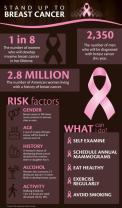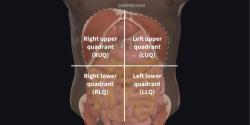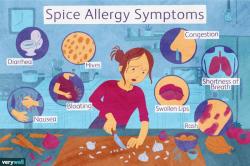What can stop a nosebleed?
To stop a nosebleed, you can use the following effective remedies and techniques:
Pinch Your Nostrils: The most common and immediate method is to pinch your nostrils together with your thumb and forefinger. Pinch just below the bony bridge of your nose, and apply firm, constant pressure for 5-10 minutes. This helps the blood vessels constrict and stop the bleeding.
Lean Forward: While pinching your nostrils, lean forward slightly. This prevents blood from flowing down the back of your throat, which can cause choking and stomach upset.
Breathe Through Your Mouth: Continue to breathe through your mouth while keeping your nostrils pinched. This helps prevent additional pressure on the nasal passages.
Use a Cold Compress: Applying a cold compress or ice pack to the bridge of your nose can help constrict blood vessels and stop the bleeding. Wrap the ice pack in a cloth to avoid direct skin contact.
Nasal Decongestant Spray: An over-the-counter nasal decongestant spray can constrict blood vessels and help stop a nosebleed. Follow the product's instructions carefully and consult a healthcare professional if you have concerns or if the bleeding continues.
Moisturize Your Nostrils: After the bleeding has stopped, you can use a saline nasal spray or apply a thin layer of petroleum jelly inside your nostrils to keep them moist and prevent further nosebleeds.
Avoid Irritants: Refrain from blowing your nose, picking your nose, or any activities that may irritate the nasal passages for at least 24 hours after the nosebleed.
Stay Calm: Stress and anxiety can exacerbate nosebleeds. Try to stay calm during the episode, as panicking may worsen the situation.
Stay Hydrated: Drinking enough water can help maintain overall hydration, including the moisture in your nasal passages, which can reduce the risk of nosebleeds.
Seek Medical Attention: If the nosebleed persists for more than 20-30 minutes, is severe, or occurs frequently, it's essential to seek medical attention. There could be an underlying issue that needs professional evaluation and treatment.
It's important to note that if you have recurrent nosebleeds or they are severe, it may be a sign of an underlying medical condition, such as a bleeding disorder or nasal structural abnormalities. In such cases, consult with a healthcare professional for a proper evaluation and guidance on long-term management.
Stopping a Nosebleed: Quick and Effective Remedies
If you or someone you know has a nosebleed, follow these steps to stop the flow quickly:
- Sit up straight and lean forward slightly. This will help to prevent the blood from running down the back of your throat.
- Pinch the soft part of your nose just below the bridge of the nose. Use your thumb and index finger to apply firm pressure.
- Breathe through your mouth.
- Hold the pressure for at least 10 minutes. If the bleeding has not stopped after 10 minutes, repeat steps 2 and 3.
- After the bleeding has stopped, avoid blowing your nose or picking your nose for at least 24 hours. This could cause the bleeding to start again.
First Aid for Nosebleeds: What to Do in an Emergency
If you have a severe nosebleed that does not stop after following the steps above, you may need to seek medical attention. Your doctor may be able to apply a nasal packing to help stop the bleeding.
In rare cases, a nosebleed may be a sign of a more serious medical condition, such as high blood pressure or a blood disorder. If you have frequent or unexplained nosebleeds, see your doctor to rule out any underlying medical conditions.
Coping with Epistaxis: Techniques to Halt a Nosebleed
Here are some additional tips for stopping nosebleeds quickly:
- Apply a cold compress to the bridge of your nose. This can help to constrict the blood vessels and reduce bleeding.
- Use a saline nasal spray to moisten the inside of your nose. This can help to prevent nosebleeds from starting in the first place.
- Avoid taking aspirin or ibuprofen, as these medications can thin your blood and make nosebleeds worse.
If you have a nosebleed that is severe or does not stop after following the steps above, seek medical attention immediately.
Additional tips:
- If you are bleeding from one nostril, pinch the soft part of the nostril that is bleeding. If you are bleeding from both nostrils, pinch the soft part of both nostrils at the same time.
- If you are having difficulty breathing, sit down and try to relax. If you are unable to breathe through your nose, try breathing through your mouth.
- If you are feeling lightheaded or dizzy, lie down and elevate your feet.
- If you are bleeding heavily, call 911 or your local emergency number immediately.












